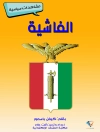Die Dissertation Role Playing Materials untersucht die materielle Seite von Larp, Mixed Reality und Pen’n’Paper Rollenspielen. Wie kooperieren Gewandung, Virtuelle-Realität-Brille, oder ein Bleistift mit Erzählung und Spielregeln? Neben Antworten auf diese Frage versucht das Buch das Verständnis von Rollenspiel als eine Handlung zu erweitern, die nicht nur von Menschen geprägt wird.
Role Playing Materials examines how larp, mixed and tabletop role-playing games work. Costumes, computers, pen and paper are not passive elements. Materials change and are changed during role-playing game sessions, because they work together with narrative and ludic elements. If we think about materials as social elements, how do they make role-playing games work? To answer this question, Role Playing Materials draws on ethnographic fieldwork among role-playing communities in Germany. The analysis draws upon the fields of game studies, and science, technology and society studies.
表中的内容
Acknowledgements
Chapter 1: Introduction 13
Chapter 2: Methodology & Theory
2.1 Introduction, or Following Materials to Multiple Role-Playing Game Sites
2.2 Introduction to Actor-Network Theory, or Building a Vocabulary
2.2.1 Actors, or various sites of action
2.2.2 Network, or action at a distance
2.2.3 Agency, or making a difference
2.2.4 Mediator and intermediary, or translating agency
2.3 Methodology, or Selection of Qualitative Empirical Data
2.3.1 From participant observation to field notes
2.3.2 From semi-structured interviews to transcripts
2.3.3 Ethical considerations
2.4 Theory, or an Actor-Network Vocabulary for Game Studies
2.4.1 Play
2.4.2 Role playing
2.4.3 Game
2.4.4 Role-playing games
2.4.5 Table 1. A vocabulary for an actor-network study of role playing
2.4.6 Situating the study
2.5 Conclusion, or a Vocabulary for Writing about Role Playing Materials
Chapter 3: Larp
3.1 Introduction, or Following the Garb
3.2 Problem, or Stories and Rules are not enough
3.3 Results, or Material Work in German Larp
3.3.1 A rhizome of actions
3.3.2 A short actor-network history of German larp
3.3.3 Role playing with garb
3.4 Conclusion, or an Actor-Network Study of German Larp in the 2010s
Chapter 4: Mixed Reality Role-Playing Games
4.1 Problem, or an Emerging Technology
4.2 Introduction, or Reassembling Realities
4.2.1 A second chance for augmented and virtual reality technology
4.2.2 Computers everywhere
4.3 Results, or Following Emerging Technologies with Role Playing
4.3.1 Obscurus 2 or Larp and Augmented Reality
4.3.2 Virtual reality and role playing
4.4 Conclusion, or Before the Blackbox of Mixed Reality Role-Playing Games
关于作者
Rafael Bienia (Święntochłowice, Poland, 1981) obtained a Magister Artium degree in Comparative Literature and English Studies at Johannes Gutenberg-Universität in Mainz, Germany. Rafael has worked for the corporate communications department at Deutsche Telekom AG in Darmstadt (2007-2011) and as a teacher at Maastricht University (2011-2015). He received his basic teaching qualification (BKO) in 2014. Rafael wrote Role Playing Materials at the Literature and Arts department of the Faculty of Arts and Social Sciences at Maastricht University (2011-2015).












